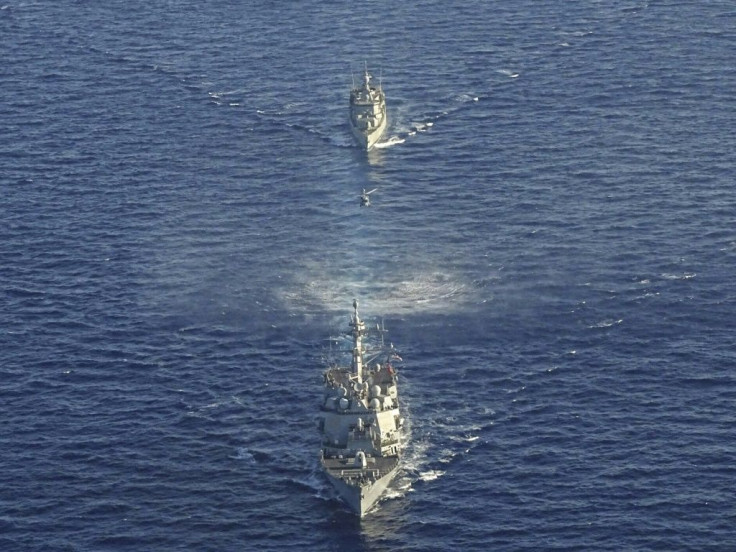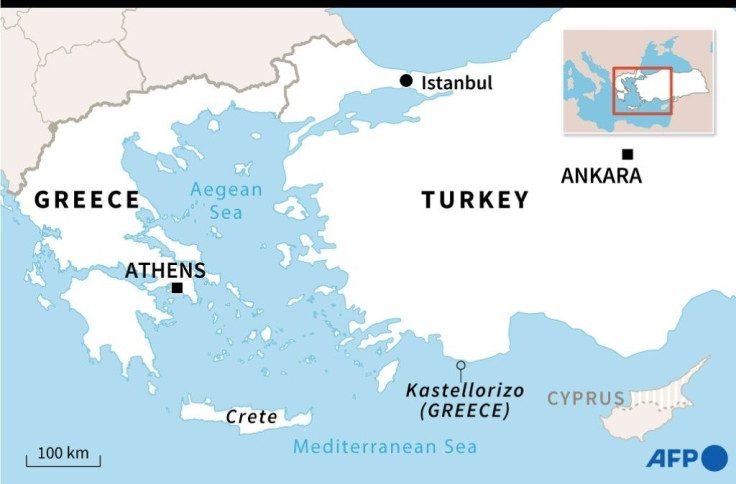Turkey Extends Gas Exploration In Mediterranean Crisis
Turkey on Thursday extended its controversial Mediterranean gas exploration mission and ordered new navy drills as its row with Greece and France over energy and borders threatened to spiral out of control.
Greece responded by ratifying an equally contentious maritime agreement with Egypt that Turkey blames for starting the latest chapter of the restless neighbours' old dispute over rights to resource-rich seas.
The two NATO members have also been staging rival war games in a conflict that could imperil Europe's access to vast new energy deposits and also threatens to embroil war-torn Libya and other countries in the Middle East.
Neither side appeared ready to stand down Thursday in a fast-developing crisis involving multiple navies from European powers as well as the United States.
The Turkish navy said it was prolonging the stay of the Oruc Reis research vessel and its accompanying warships in waters claimed by Greece by an extra five days to Tuesday.
It also announced plans to hold "gunnery exercises" at the edge of its territorial waters in the northeastern corner of the Mediterranean next Tuesday and Wednesday.
"We are determined to protect our rights," Turkish Defence Minister Hulusi Akar said.

Greece said Turkey's decision to extend the seismic research work southeast of Crete underscored Ankara's refusal to defuse the crisis.
"It is once again shown who wants a de-escalation and who doesn't," a diplomatic source said.
Its parliament later ratified an exclusive economic zone agreement with Egypt that lays claim to waters Turkey considers its own.
An increasingly agitated Germany said ahead of an EU foreign ministers' meeting on the crisis in Berlin that both countries had to end their naval drills if they really wanted a peaceful solution to the dispute.
"The preconditions for (direct negotiations) are that these manoeuvres in the eastern Mediterranean are stopped," German Foreign Minister Heiko Maas said after completing a failed round of diplomacy in Athens and Ankara this week.

US President Donald Trump also spoke to Greek Prime Minister Kyriakos Mitsotakis and Turkish President Recep Tayyip Erdogan on Wednesday -- his first direct involvement in the dispute.
The White House said Trump "expressed concern over increased tension between NATO allies Greece and Turkey".
The Greek prime minister said afterwards that Athens was "ready for a significant de-escalation -- but on condition that Turkey immediately stops its provocative actions".
Erdogan has already rejected any preconditions for talks with Greece.
His office said Erdogan "reminded (Trump) our country was not the one creating instability in the eastern Mediterranean".
Erdogan "emphasised how Turkey has taken concrete steps which proves it sides with lowering tensions and dialogue," the presidency said.
Greece's European support is led by EU military powerhouse France.
French frigates and fighter jets joined the Greek war games -- also including Italy and Cyprus -- on Wednesday while Turkey staged smaller ones nearby with a US navy ship.
The French intervention has particularly upset Turkey.
"The time for bullying is over. You have no chance of forcing us to take actions through bullying," Akar told France in a televised interview.
Akar also urged Greece to stop hiding behind France or the EU and said: "As Turkey and the Greeks, we need to solve our problems by holding talks."
The EU meanwhile appears divided over how to respond.
Greece's push to sanction Turkey failed to get off the ground at an EU foreign ministers' video conference on August 14.
Turkey's position found some support from southern European countries that would be most directly affected should Erdogan retaliate against the bloc.
EU foreign ministers were expected to make a statement on the standoff on Friday.
© Copyright AFP 2024. All rights reserved.





















